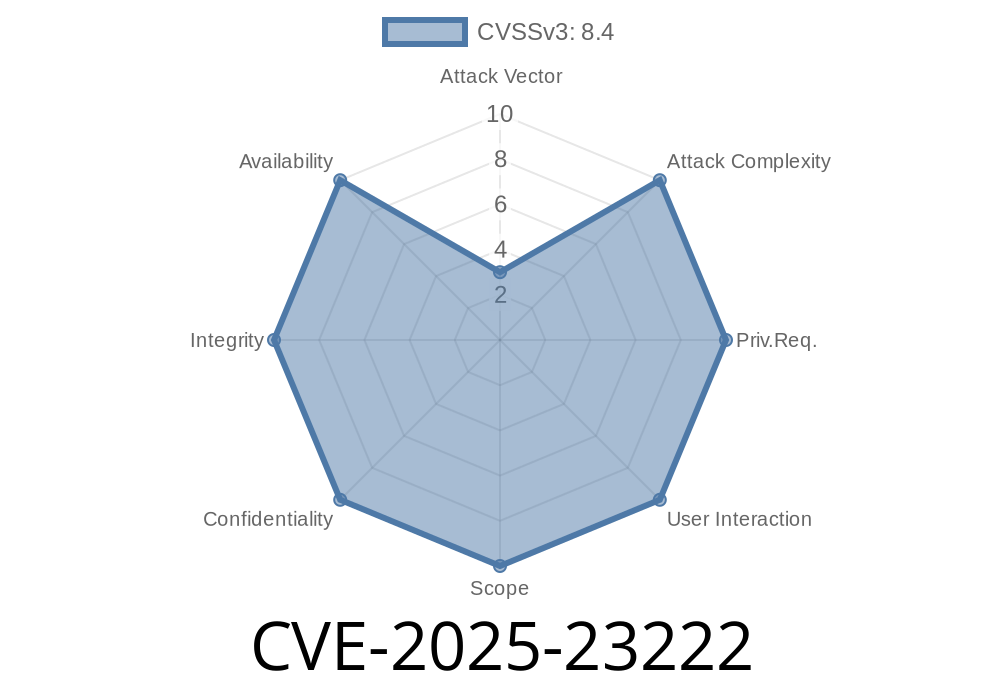CVE-2025-23222 is a serious vulnerability discovered in the Deepin Linux ecosystem, specifically affecting the dde-api-proxy component up to and including version 1..19. Using this flaw, unprivileged users can interact with powerful D-Bus methods as root, that should only be available to system administrators. In this exclusive post, let's break down how this bug works, look at what the code is doing, see how it can be exploited, and learn how to protect yourself.
What is dde-api-proxy?
dde-api-proxy is a service used in Deepin Desktop Environments. It runs as root and bridges user requests between unprivileged desktop user processes and deeply integrated D-Bus system services set up for the desktop environment.
Under normal circumstances, system-level D-Bus methods (exposed by things like networking or power management) should only allow certain actions for root or privileged users. Ordinary users should be denied unless PolicyKit or similar explicitly allows them to act.
The Problem
dde-api-proxy listens on a local D-Bus address, accepting messages from *any* local user. When a user sends a D-Bus method call, the proxy forwards the request to the system bus – but here's the catch:
The real D-Bus service sees the request as if it came from root!
The D-Bus service, thinking root is making requests, might execute actions that regular users should not be allowed to do.
What if PolicyKit is Involved?
Many D-Bus methods are protected by PolicyKit (Polkit) which checks who is asking before allowing access. In this setup, the D-Bus system only sees root (dde-api-proxy), so the check *always* passes. That means admin-level actions become available to any desktop user running on the system.
A Simple Illustration
Here is a simplified snipplet of what this insecure forwarding looks like in Python-style pseudocode:
def handle_user_message(user_socket):
# Accept any local user connection
user_message = user_socket.receive()
# As root, create a D-Bus connection to the system bus
system_dbus = DBusConnection(as_root=True)
# Forward the original user message to the system D-Bus
system_dbus.send(user_message)
# Response may go back to the unprivileged user
What's missing? No check or filtering is done for the legitimacy of the method or the user's true identity!
Real-world Exploit Scenario
Assume you are a local, non-privileged user on a Deepin system with default settings.
Send a privileged method call:
- For example, ask to reboot or shutdown the system, or alter system settings that would normally trigger an authentication dialog or require root.
You could call the method to power off the computer
dbus-send --system \
--dest=org.freedesktop.login1 \
--type=method_call \
/org/freedesktop/login1 \
org.freedesktop.login1.Manager.PowerOff \
boolean:true
If routed through dde-api-proxy, this ends up shutting down the machine without asking for admin authentication.
References & Resources
- Official Debian Security Tracker for CVE-2025-23222
- Deepin dde-api-proxy GitHub repository
- D-Bus Specification and Security Notes
- PolicyKit (Polkit)
Protecting Yourself
Until an updated, patched version of dde-api-proxy is provided, consider the following safety tips:
Conclusion
*CVE-2025-23222* is a classic example of privilege escalation by insufficient identity forwarding during inter-process communication. Always ensure that proxies (especially those running as root) correctly verify and relay *who* is requesting an action, not just *what* action is being requested. Stay updated, check your running services, and keep your machines secure!
*Stay safe, keep your system updated, and always dig into how inter-process communication is handled on your Linux desktop!*
Timeline
Published on: 01/24/2025 17:15:15 UTC
